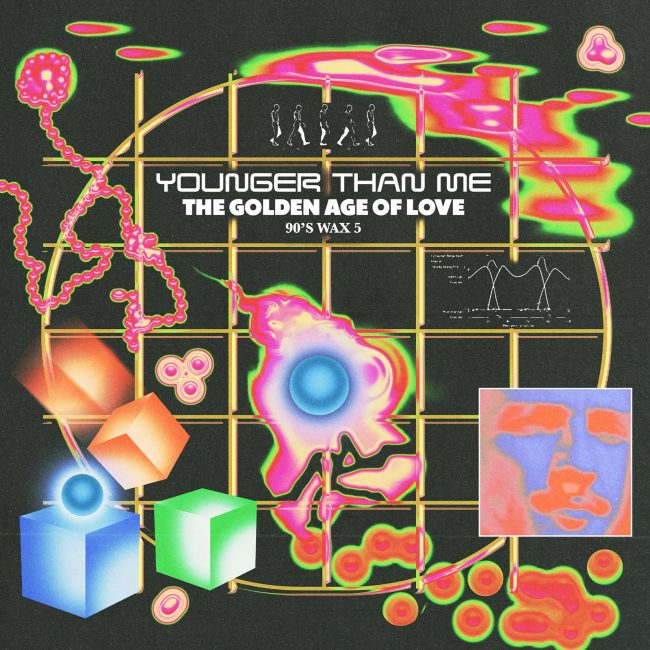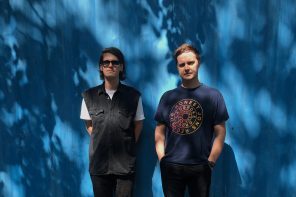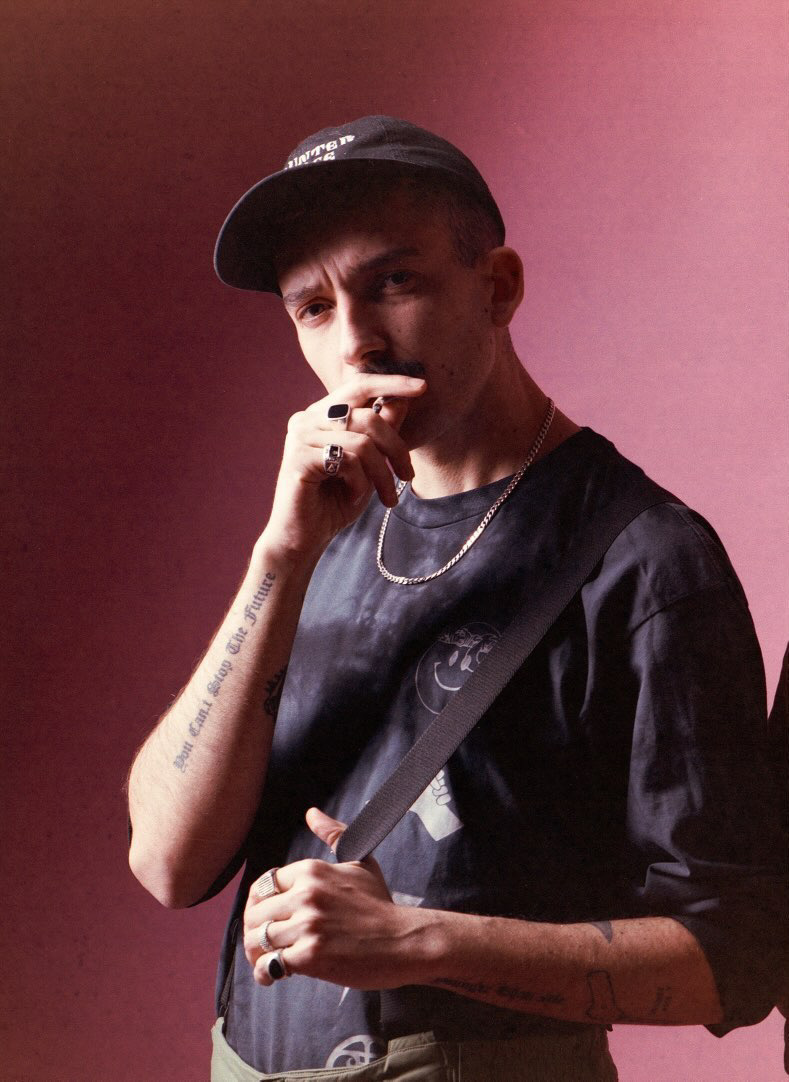
All modern dance music (or music in general) is a mixture of the old and new, but taking a strong inspiration from the past whilst also cementing your own unique and authoritative sound is something so few people manage to do. That is exactly what Younger Than Me have done, their sound is an unapologetic love letter to the heady peak days of the 90s. Taking influence from Progressive House, Trance, EBM, Breakbeat, and Techno ideas but incorporating that into their own take on what this should sound like.
Francesco Mingrino has been releasing music across a host of well regarded labels, from Jennifer Cardini’s “Dischi Autunno” to the Tusk Wax offshoot “90’s Wax” and many more, each record has been a must buy record and a good example of Francesco’s passion for the music and the dancefloor experience that creates. With his debut LP just around the corner, we felt it was high time to get him back on the site to talk a bit about the music that inspired his music and his LP “**The Golden Age Of Love**” specifically, from the original cornerstones of modern music as we know it, to more obscure pieces you might not know.
INTERVIEW
Hey Francesco, great to have you back! How does it feel to be releasing your debut LP?
Hey guys, happy to come back :) Finally, it’s out, lol. It was a very long wait, taking about 3 years from when I finished the LP until the release date – perhaps too long. Listening to the tunes over and over for two years made them feel old. Music is constantly evolving, as am I, but with all the positive feedback, I can say that it was just my initial feeling, and I’m really happy about this LP. It’s an album, so no need to focus on dancefloor bangers; it’s more of a retrospective of the artist, even though I still play some tracks like “Zaratustra Dance” and “Sadness is the Only Way to Happiness” in all my sets.
Where did you produce the record, and can you tell us a little bit about your studio and how you produce a record?
I decided many years ago not to focus solely on analog production because it limits the creative process. After that decision, I streamlined my studio to include only the gear I really use, along with digital plug-ins. You can hear all my productions featuring my favorite synth, the JP8080 from Roland, plus my baby Electribe, the Yamaha dx200, and the Emu extreme series.
“The Golden Age Of Love” is a vibrant homage to ’90s rave culture. What draws you to this era, and how do you balance nostalgia with innovation in your music?
I’m a ’90s kid who grew up in the late ’90s and early 2000s. I began my ‘raver career’ with Tekno Illegal Parties featuring Spiral Tribe, Teknambul, while also listening to Francesco Farfa and other old Italian DJs from the ’90s in some clubs. What I really miss and try to bring into all my sets and productions is the spirit of this age. It was a real game-changer, not just the music, the crowd, the club, and the building, but the spirit of freedom and revolution. These two vital feelings were blended perfectly to create “The Age Of Love,” so I tried to find these two emotions in my music.
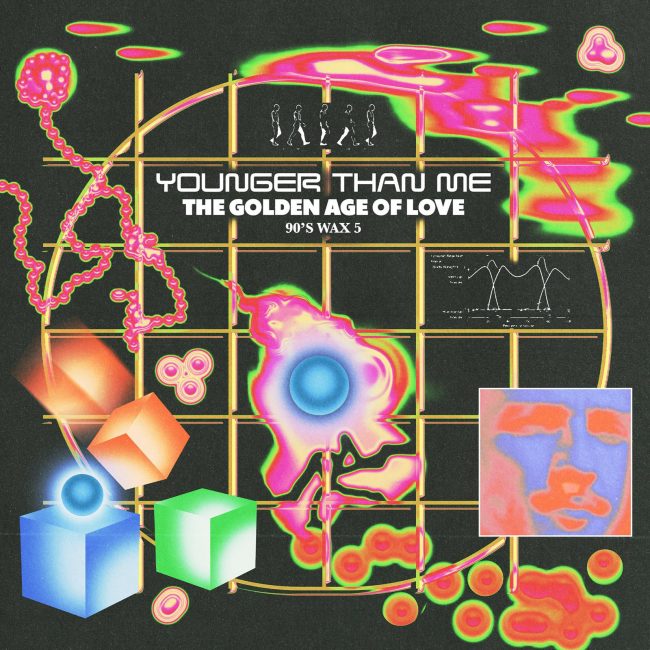
Your music is described as a dynamic blend of various ’90s electronic genres. How do you approach blending these styles & ideas while maintaining a cohesive sound throughout the album? What elements of that era do you find most compelling, and how do you balance these different energies to ensure a fluid listening experience?
It’s the balance of my music plus my set, my old school background mixed with new influences. I love crossover tracks and sets, and this balance gives me the feeling of movement, whether we’re talking about production or a DJ set – it’s the same. Unfortunately, what I have noticed lately is that electronic and club music has lost its political and rebellious edge for which it was born. Even the lyrics and choruses of tracks lack substance, often simply stating the name of a drug followed by a straight beat and pedal. Let’s take, for example, the track by Spiral Tribe, “Forward The Revolution.” The repetitive lyrics go: “You may stop the party but you can’t stop the future,” merging rebellion, freedom, and fun. This is what we seem to have somewhat lost in our days compared to the ’90s.
The title, “The Golden Age Of Love,” suggests a thematic focus on love. How does this manifest across the tracks, and what does “love” mean in the context of your music?
Love is everything in my life, just as it is in music. It is the cornerstone feeling that guides my existence; without it, there is no life and no music. Despite the fact that my job requires 24-hour dedication, music remains my foremost passion. It’s not just a job; it’s dedication, care, and love.
How do you see your music contributing to the current electronic music landscape?
I can talk more about the intention rather than the actual contribution; that will only be visible to posterity. What I’ve been trying to do for a while is to educate the new generations, and I feel this task is becoming increasingly important. Let me explain why: Certainly, the new generations of producers and musicians have been born and raised with modern technology, giving them greater ability to learn and use modern technology to produce a better-sounding product. However, what we are losing, especially after COVID-19, is the desire to listen to more complex music, music with a spirit, perhaps more challenging for a dancefloor but with more emotion. Just look at the phenomenon of trance pop, of which I won’t mention specific names, but the reference is clear enough. So, if even we ‘veterans’ exploit this momentary hype to make only simple dancefloor music, we lose the role of educators that we absolutely need to be for the new generations.
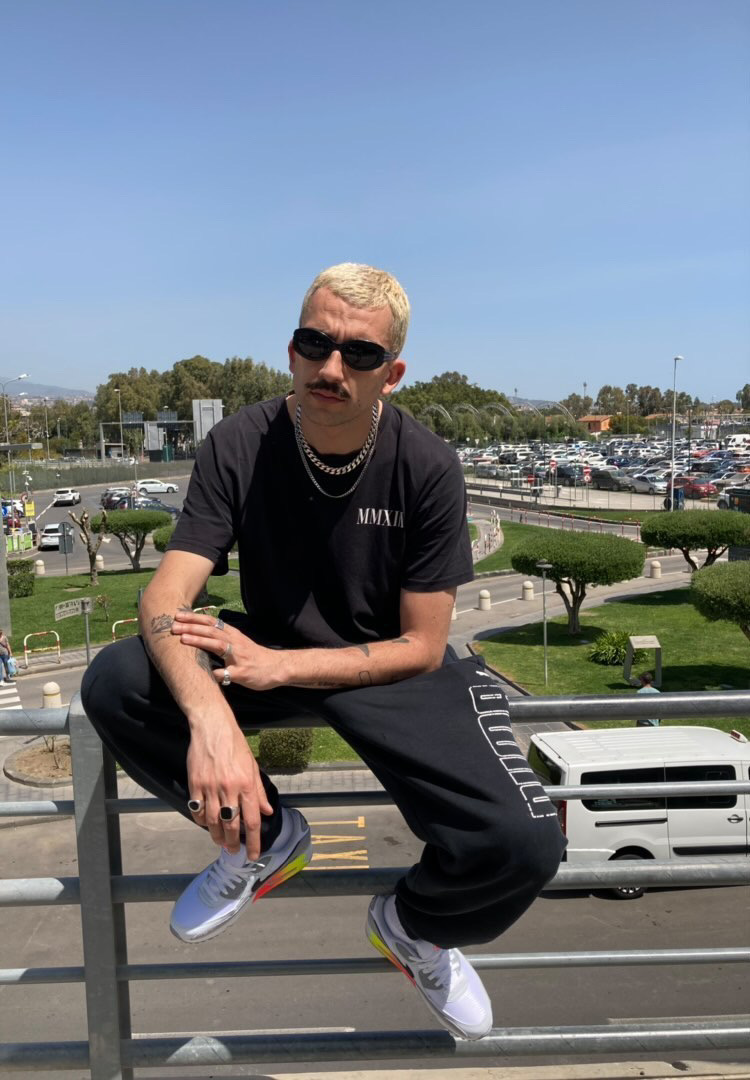
Considering the global influence of Italian electronic music, how do you think your Italian heritage influences your sound and approach to music production? Do you really think it’s that relevant at the moment?
I noticed that in the past, during the ’80s and ’90s, after that, the Italian influence in the global world of electronic music disappeared for years. Now we have a lot of great Italian artists, but I don’t see a proper movement as in the past, and that’s really sad!
You’ve released music on a variety of labels, including your own 90’s Wax. Does running a label influence your artistic freedom and the way you release music?
I mean, 90s Wax is not my own label. I’m the art director because that was the deal with Chriss (owner of Tusk Wax and 90s Wax) from the beginning. On the 90s Wax label, only music from Younger Than Me or collaborations with Younger Than Me are released. It’s my opportunity to release what I really feel without compromises related to marketing, etc.
Collaboration seems to be a significant aspect of your work, featuring artists like Massimiliano Pagliara, Brame & Hamo, and Pablo Bozzi. How do these collaborations influence your creative process and the final sound of the tracks?
I truly love collaboration – it’s a fact! This extends not only to 90s Wax collaborations with Timothy Clerick, Skatebard, Francesco Farfa, Massi, Pablo, and Brame, and Hamo. Additionally, there’s the Y2C project with my best friend Luca (Curses), and an exciting collaboration in progress with Maruwa. This passion extends beyond just musical collaborations; it’s the same reason why I’m drawn to crossover tracks and DJ sets. I find joy in mixing, in blending, and in incorporating new things – even the unconventional ones. It’s the authentic soul of my creative process.
Reflecting on your journey so far, how has your music evolved from your early releases to this debut full-length album?
It’s still evolving, but there was a distinct point from my early releases where I shifted away from dark disco vibes, which weren’t really my style, to embracing 90’s rave vibes that align more closely with my musical preferences. What’s intriguing is that some people still perceive me as playing and producing 80’s vibes or categorize it as a new form of dark disco. Honestly, I moved away from that quite some time ago, specifically around 2017/2018. It’s truly mind-boggling for me. It’s like, “Have you been listening to my productions and sets for the past five years before booking me? Why am I playing in a dark disco night? Why do you still label me as ‘Italo’ in my description?” To be honest, I hate Italo Disco! Hahaha.
For your playlist we asked you to pick out tracks which inspired your music or directly inspired the music on the album, which of those tunes would you mark as being at the core of you as an artist?
I can say Underworld in general was and is my core inspiration. They were the exact switch from the ’80s bad sound to a more club-oriented music. But also everything that comes from the Manchester period was really inspiring me.
In your playlist, did you pick any tracks that most people might not know? Tell us about those more obscure tracks and what captured your imagination?
I don’t know. There are many tracks that are well-known to everyone (I hope), but perhaps tracks like Liquid X or Higher Intelligence Agency could help people better understand where the music that today’s ‘kids’ call Trance or ’90s actually comes from.
Are you touring the album? Where can people catch you live this year?
Yep, sure! Europe as usual, but I’ll be in Asia at the end of May for the album tour and the classic Mexico and Colombia tour in September and October.
Now that the album is in the bag, will you take a break from production, or do you have more coming soon?
I have a new EP coming on Skylax record with two remixes from two super talented artists: Greg from France and Mahkina from Mexico. I’m also working on a new EP in collaboration with Maruwa. The show must go on! Hugs, guys.
Order now, The Golden Age Of Love on 90’s wax.

